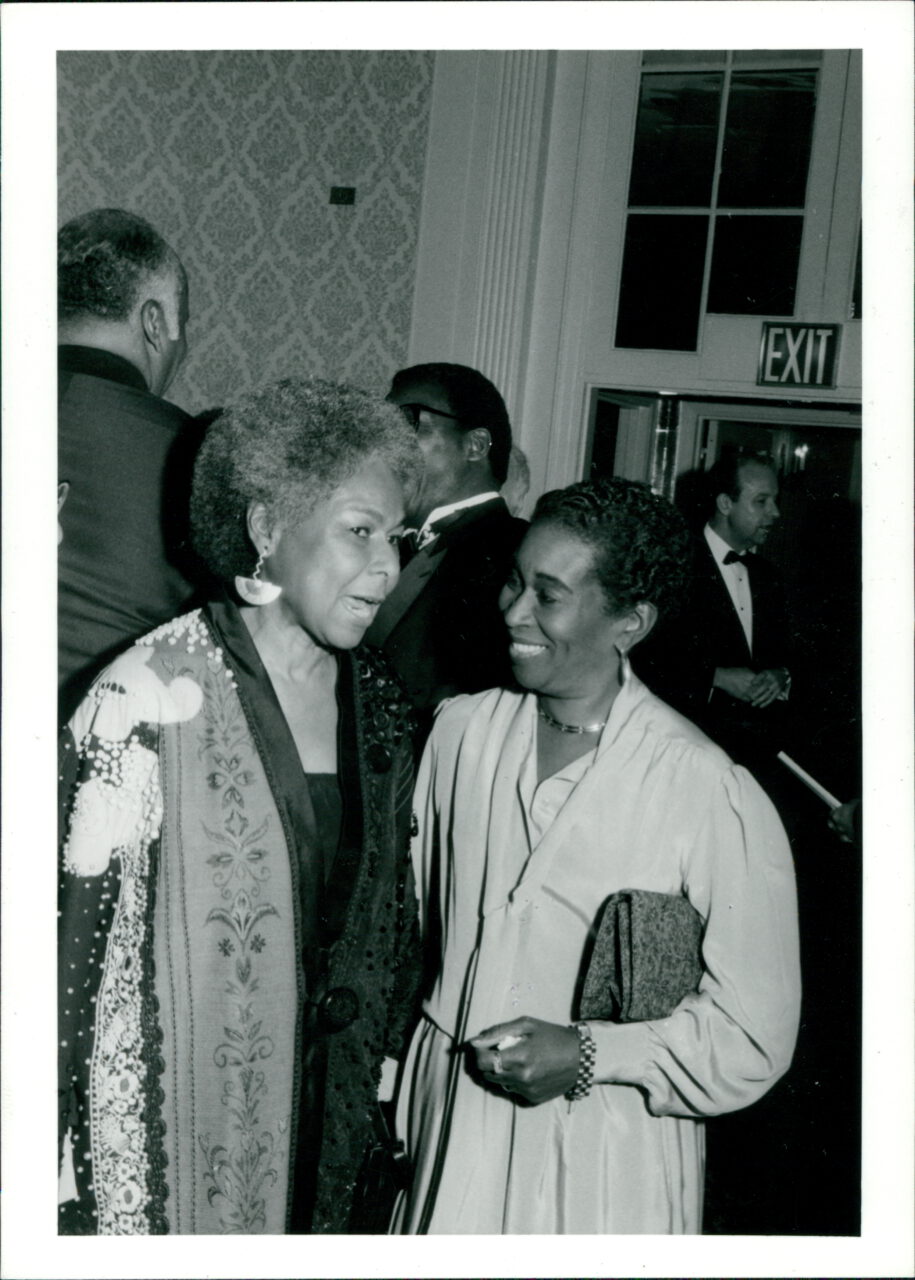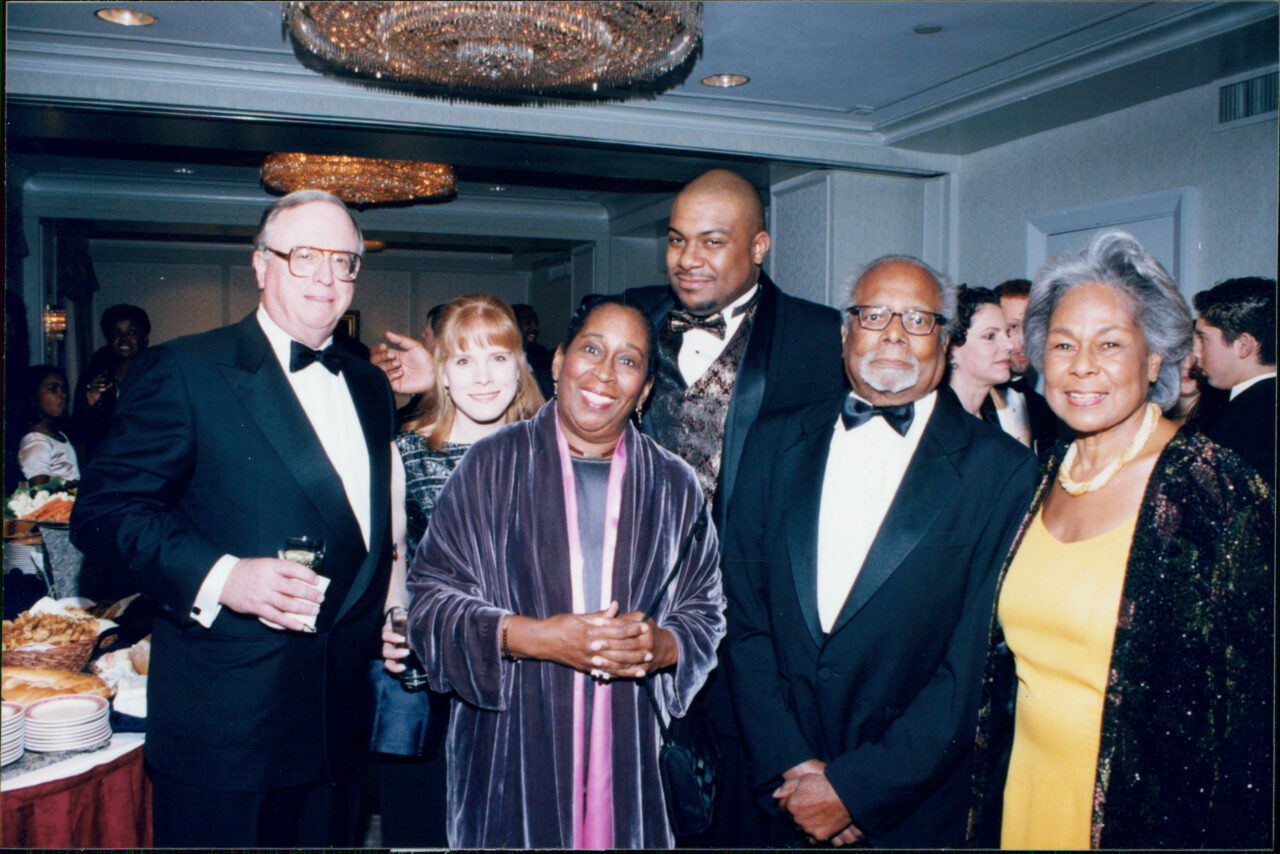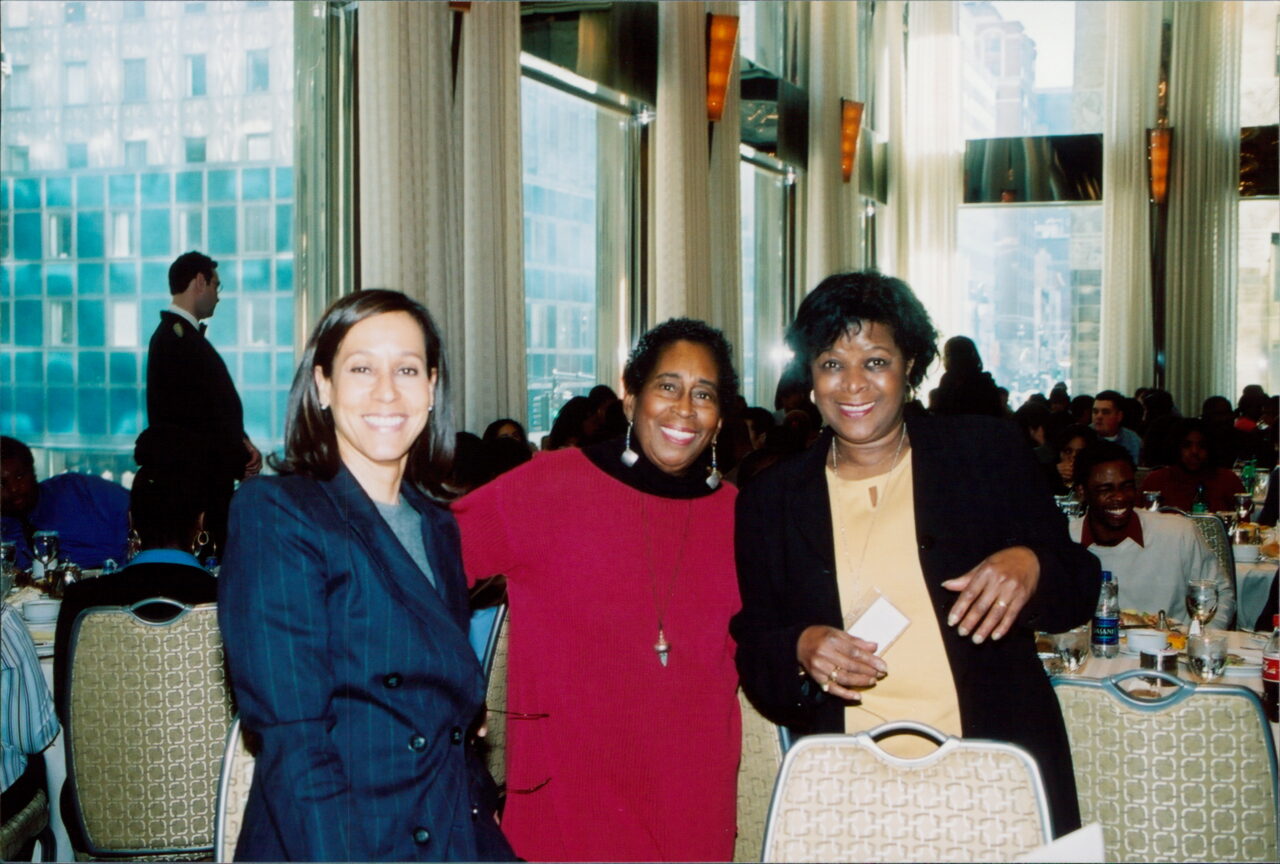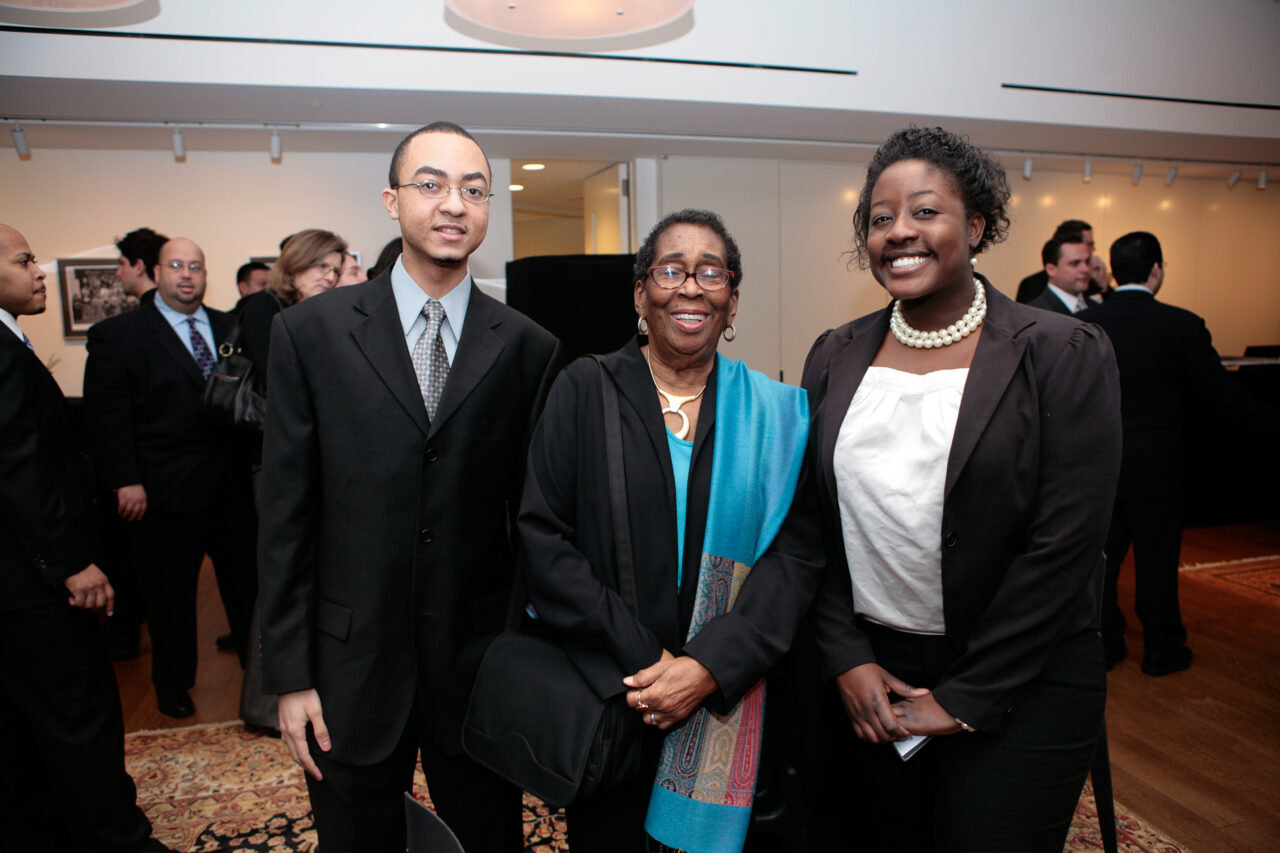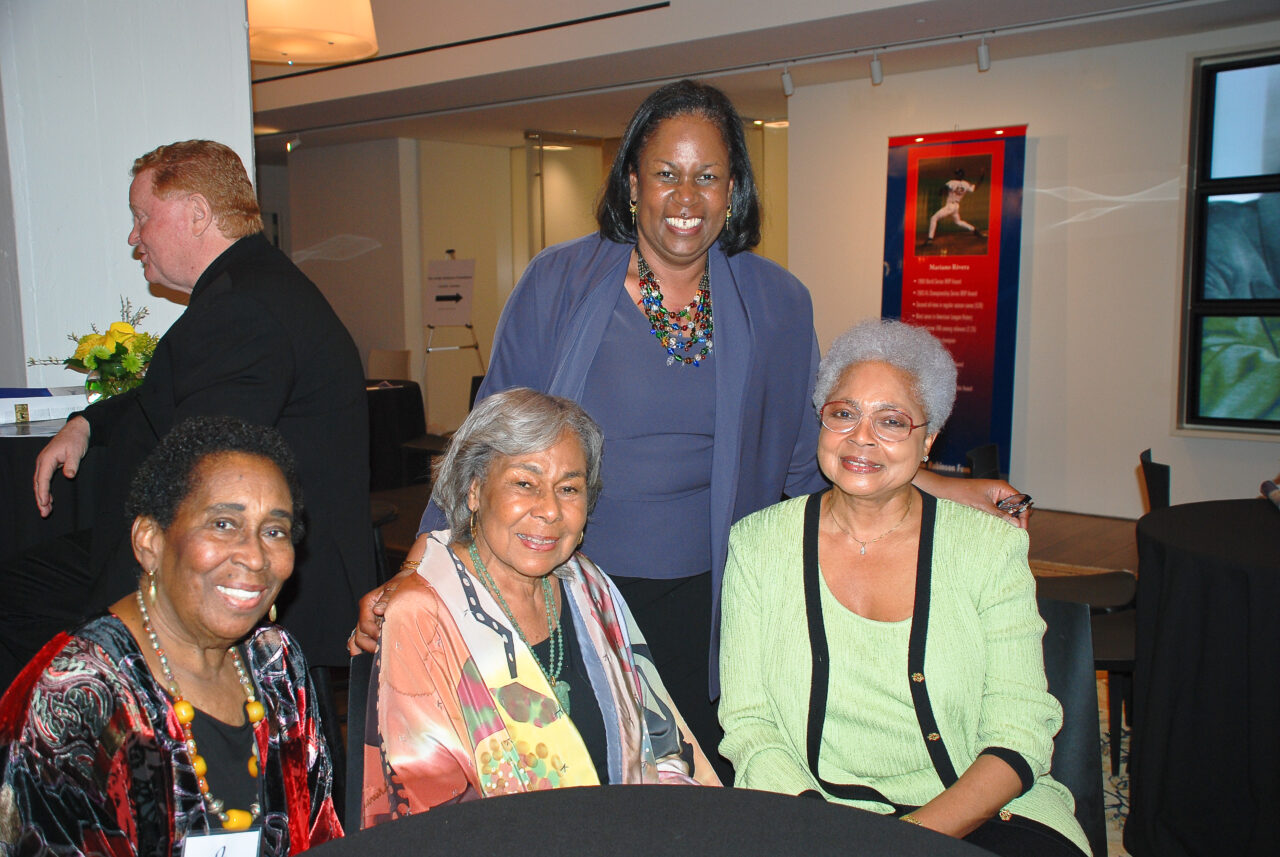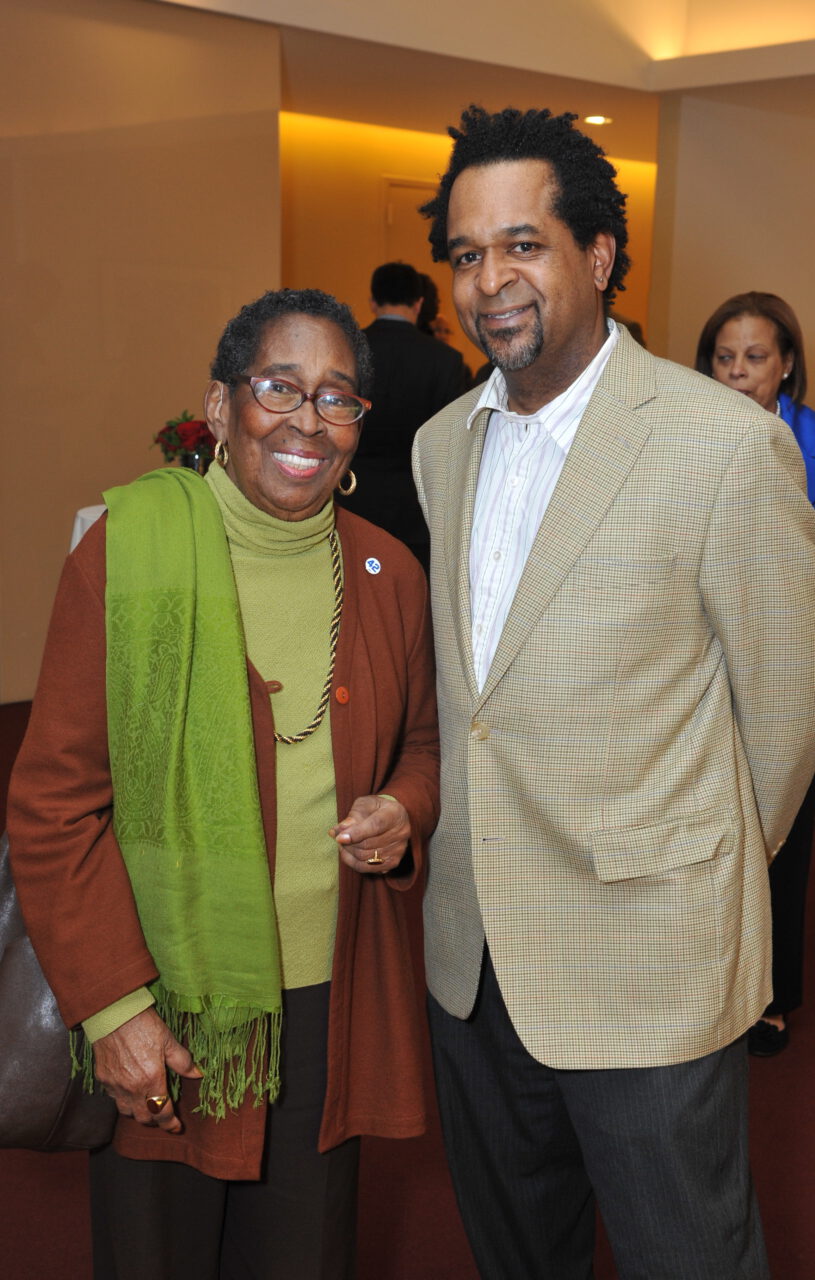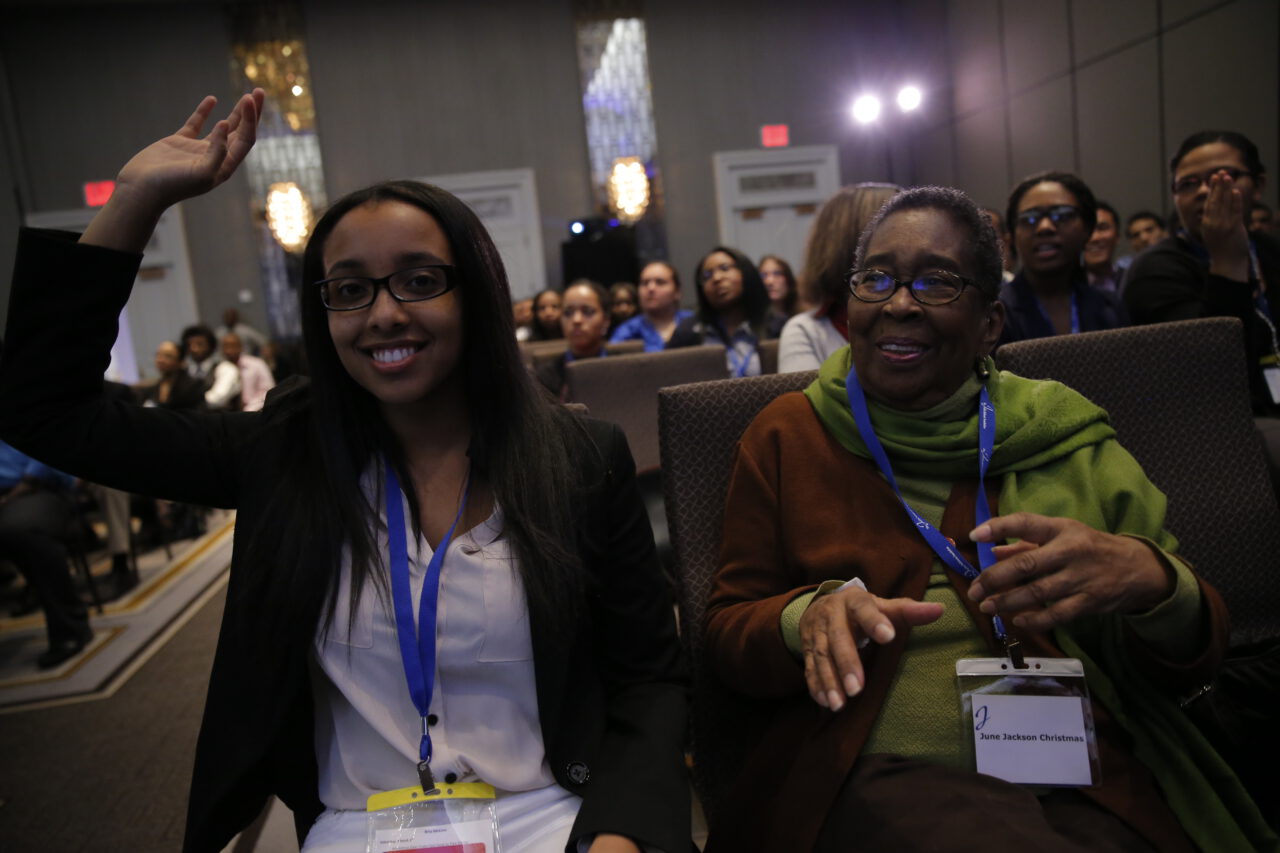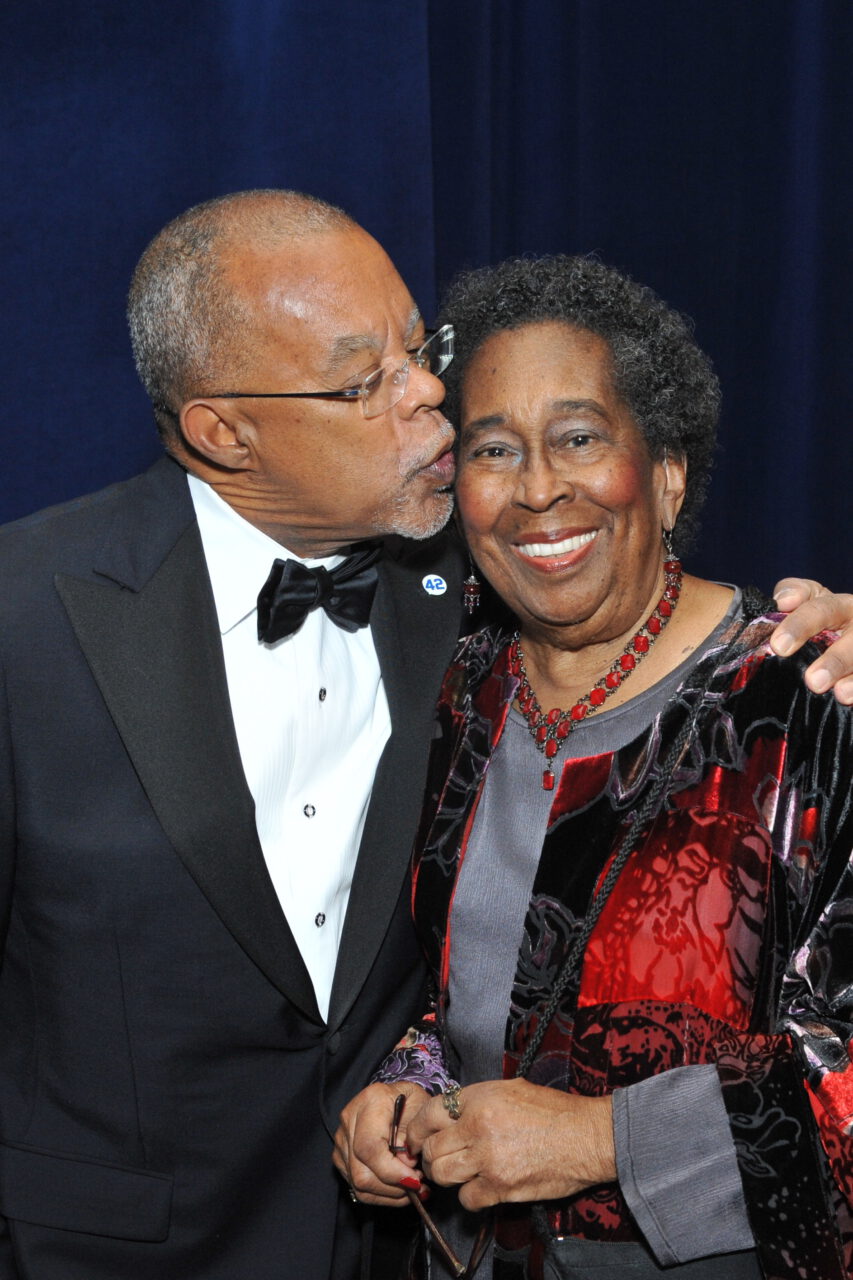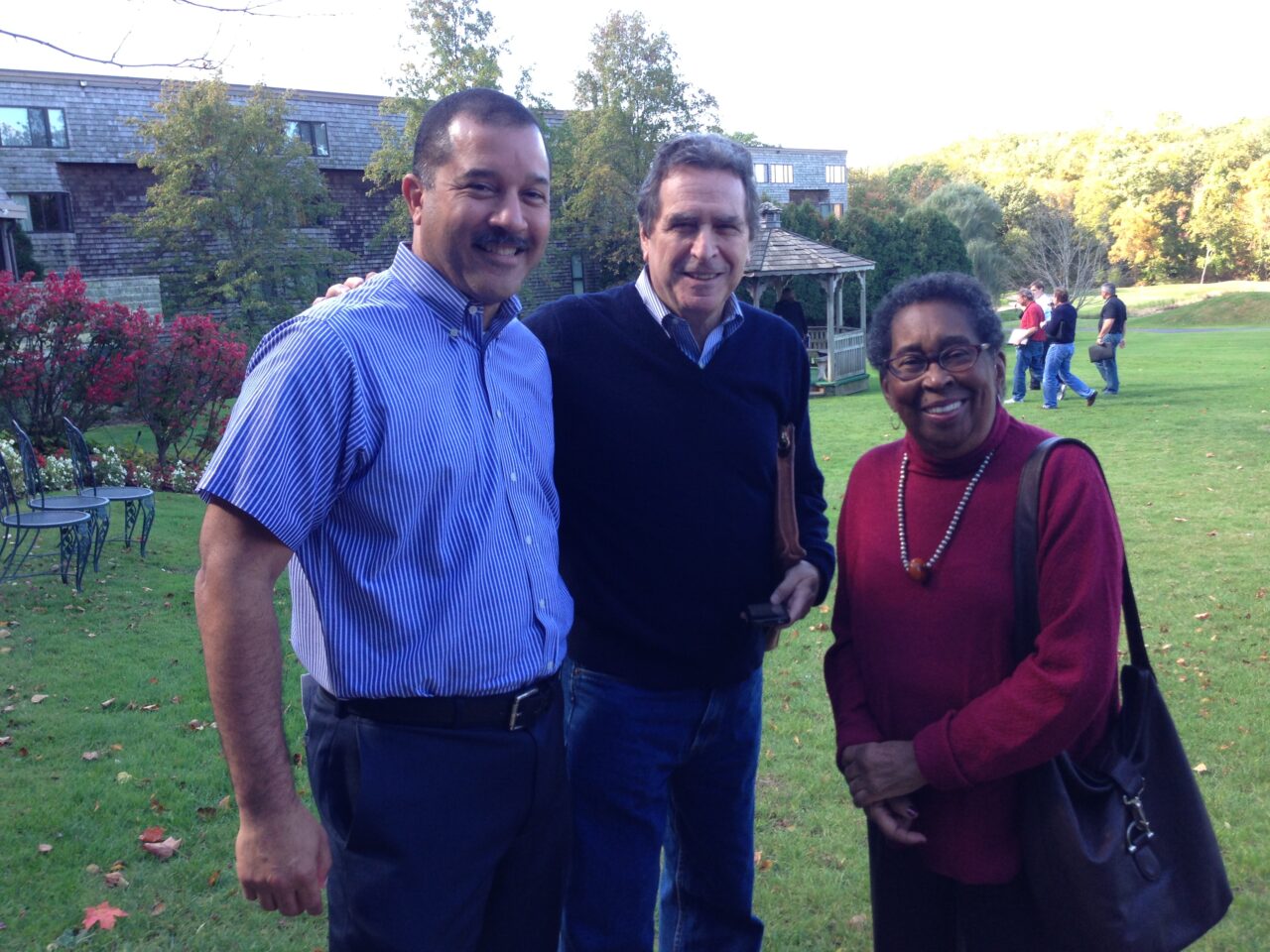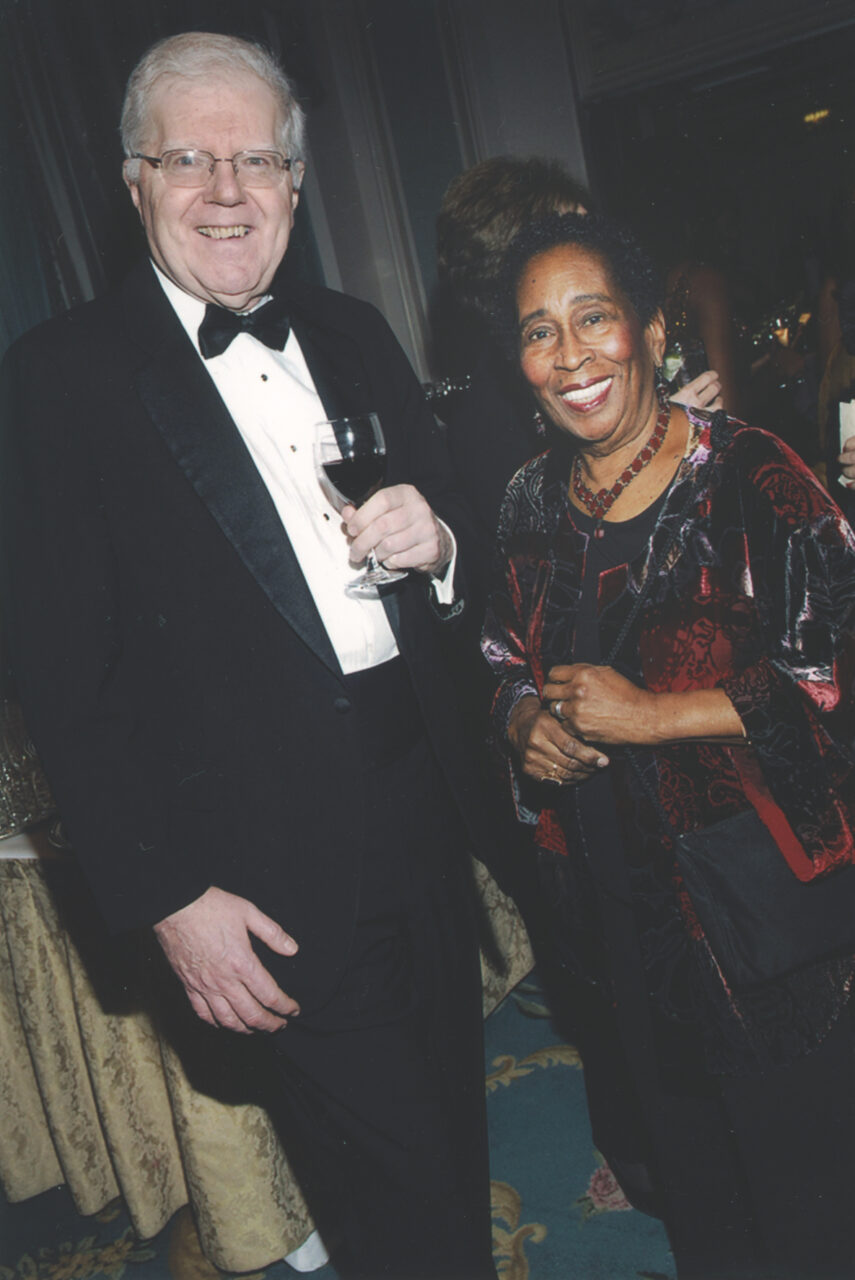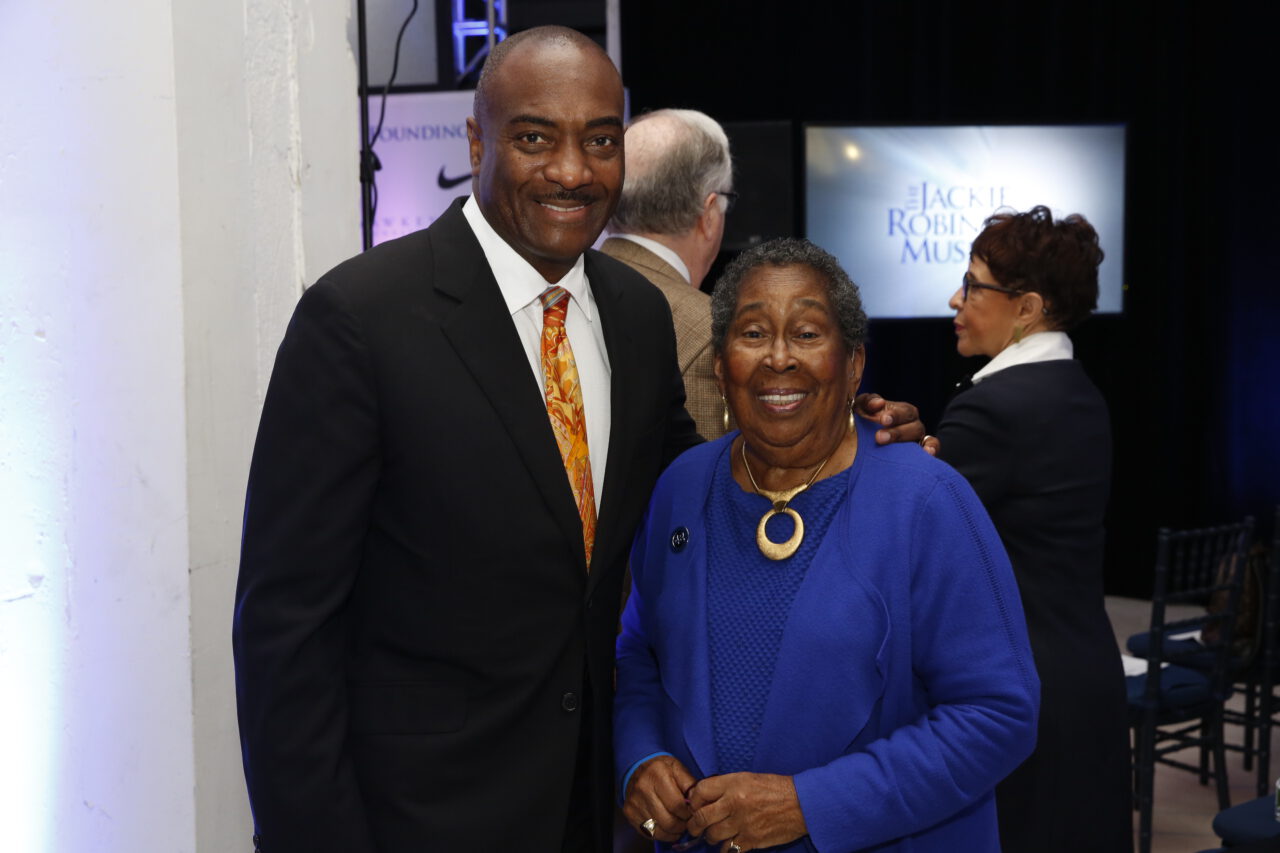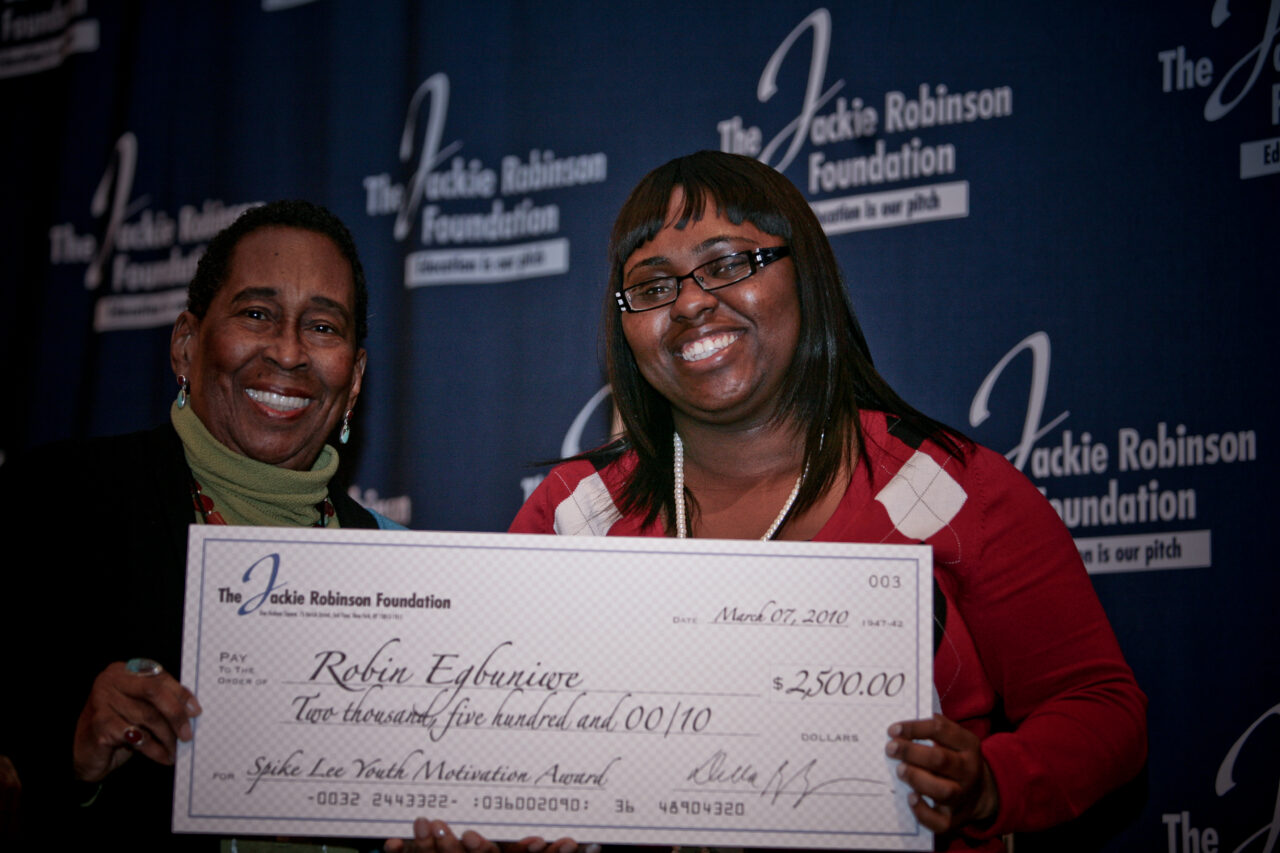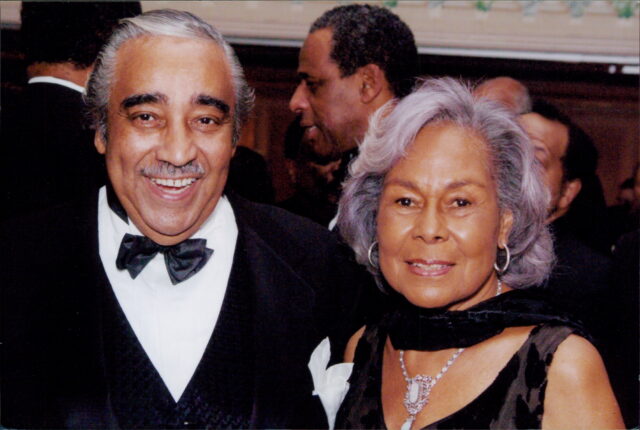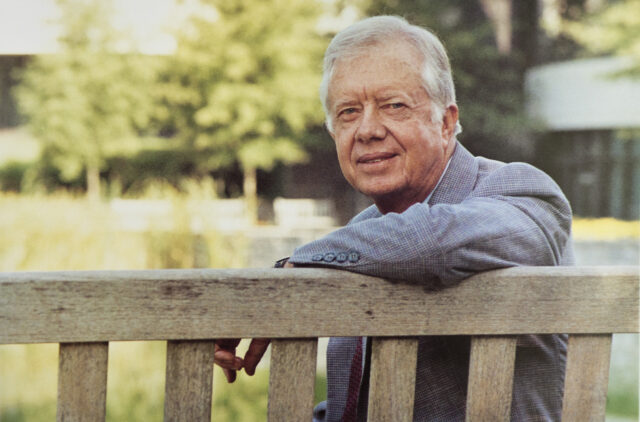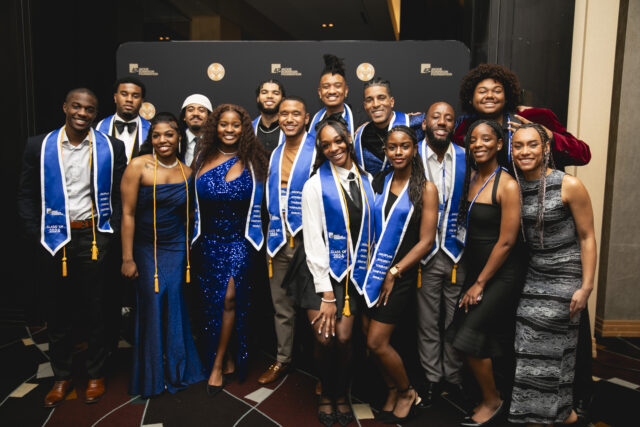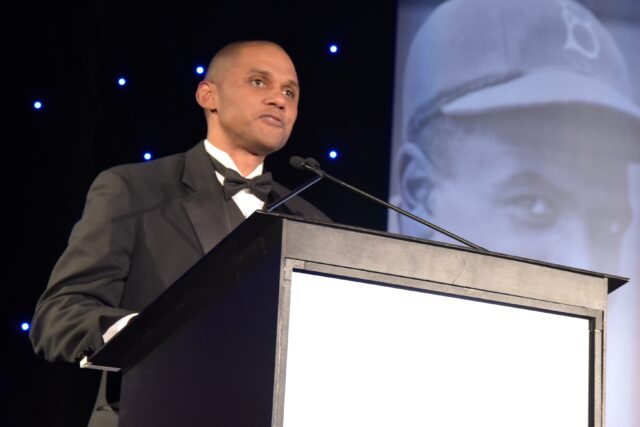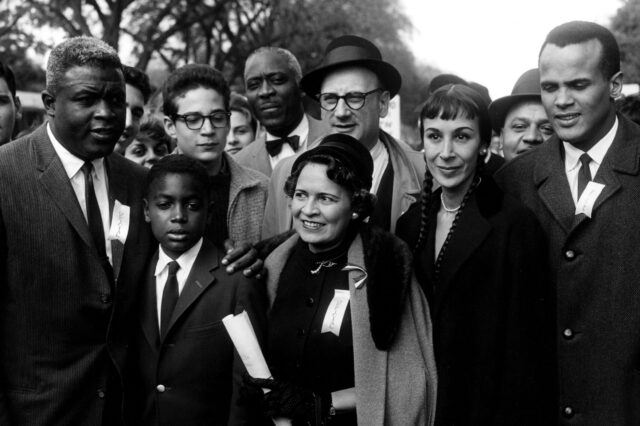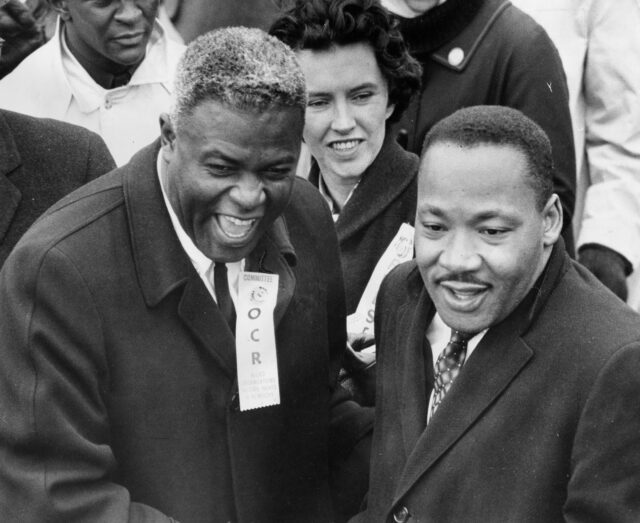The Jackie Robinson Foundation mourns the loss on Sunday, December 31st of JRF board member emeritus Dr. June Jackson Christmas, renowned psychiatrist with an unwavering dedication to improving mental health services for vulnerable populations across the nation.
A pioneer on many fronts, Dr. Christmas graduated from Vassar College in 1945, as one of the three first Black graduates, and the Boston University School of Medicine in 1949, as one of only seven women. After completing her residency at Bellevue Hospital in New York City and receiving a certificate in psychoanalysis from the William Alanson White Institute, she practiced privately and worked at the Riverdale Children’s Association for 12 years. In 1964, she founded the Harlem Rehabilitation Center, a nationally-acclaimed Harlem Hospital program that provided vocational training and psychiatric services to patients who returned to their communities. She also served as the principal investigator on research projects for the National Institute of Mental Health.
In 1972, Mayor John Lindsay appointed her commissioner of the New York City Department of Mental Health and Retardation Services. Both Mayors Abraham Beame and Edward Koch, who succeeded Mayor Lindsay reappointed her. While commissioner, she took a leave to head President Jimmy Carter’s 12-member transition team for the U.S. Department of Health, Education, and Welfare. Later in life, she remained civically active, including serving on Governor Mario Cuomo’s Advisory Committee on Black Affairs.
Dr. Christmas’ extraordinary career included posts in academia, as a Clinical Professor of Psychiatry at the Columbia University College of Physicians and Surgeons, Professor of Behavioral Science at the City University of New York School of Medicine, and Resident Professor of Mental Health Policy at Brandeis University’s Heller Graduate School of Social Welfare. She founded the Urban Issues Group, a research institute, and co-founded the American Psychiatric Association Committee on Black Psychiatrists and was the first Black woman to serve as President of the American Public Health Association.
As the daughter of a homemaker who worked at the Charlestown Navy Yard in Boston during WWII and a father, a postal worker who petitioned for fair treatment of Blacks in the union and civil service system, Dr. Christmas began to advocate for equal rights at an early age, participating in protests and leading causes for fair treatment on many fronts — in housing, labor and access to public services.
Having met Jackie Robinson when they both served on panels sponsored by the National Conference of Christians and Jews, Dr. Christmas and her husband Walter Christmas, a founder of the Harlem Writers Guild and public relations director for the Coca-Cola Bottling Company of New York City, became friends with Jackie and Rachel. The couples shared a staunch dedication to advancing civil rights and equal opportunities.
Spurred on by their mutual commitment to advancing mental health as well as civil rights, Dr. Christmas and Rachel Robinson connected during the 1960s, paving the way for Dr. Christmas to join the JRF board on which she served from 1989 to 2018. Recognizing the importance of mentorship and steadfast in supporting the next generation of medical professionals, Dr. Christmas hosted luncheons in her home for JRF Scholars interested in healthcare careers, eventually attracting so many Scholars that the program had to be moved to accommodate more participants. Dr. Christmas served as a longtime chairperson of the JRF Board Program Committee and was a JRF director emeritus until her death. She consistently championed JRF’s mission and leaves a blueprint for excellence, compassion, and humility that will endure at the Jackie Robinson Foundation for generations to come.
We are grateful to June’s children, Rachel Christmas Derrick, Gordon Christmas, and the late Vincent Christmas, all friends of the JRF community, for sharing Dr. Christmas with us. We offer our deepest sympathy to them as they navigate this tremendous loss. Our condolences extend to all members of June’s family and her many friends and colleagues.
A woman of astounding accomplishments and courage, June touched our minds and our hearts with a simple revelation when asked about her career choice. She believed that “maybe if I went into psychiatric medicine, I could teach people not to be racist.”
May our beloved Dr. Christmas rest in eternal peace.
